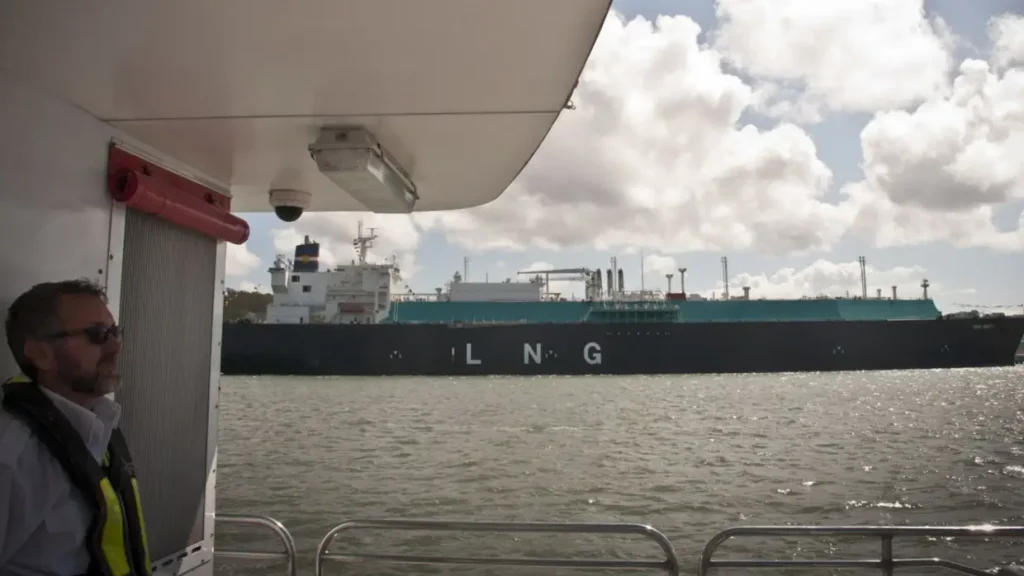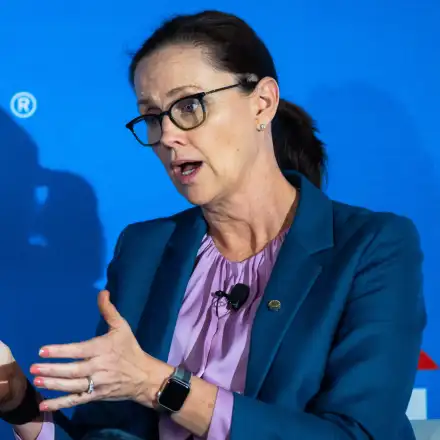
Article by Angela Macdonald-Smith, courtesy of Financial Review
01.04.2025
The largest South Korean investor in Australia and one of the world’s biggest buyers of LNG has attacked political intervention in the domestic market and questioned whether it can rely on multibillion-dollar deals it has struck with local producers to buy energy.
In a rare public intervention that highlights growing concerns among Asian LNG buyers, Korea Gas Corporation told The Australian Financial Review that proposed measures from both sides of politics to tackle threatened shortfalls over the next few years could threaten gas contracts it has already signed.

“[Kogas] is undoubtedly concerned of the Australian government’s interventionist approach to the gas shortage situation in the Australian east coast market,” said a spokesman for the state firm’s Australian subsidiary.
Kogas owns part of the Gladstone LNG project operated by Santos and is one of the venture’s key customers. The spokesman noted it invested $US4 billion ($6.3 billion) in GLNG and continues to invest a “substantial” amount every year to maintain its coal seam gas production in Queensland.
He said the Korean giant had invested “with the confidence that its contracted LNG position would not be negatively affected by host government policies that ultimately works against Kogas’ original investment objectives”.
Reservation policy doubts
The spokesman added the Korean energy giant was concerned whether its contract to buy gas from GLNG was “sustainable” and “capable of being preserved throughout the next few years in light of the forecasted east coast gas shortfall situation”.
Opposition Leader Peter Dutton said in his budget reply last week that a Coalition government would force some LNG currently exported to Asia to be diverted to local buyers to cut energy bills. The Albanese government has already intervened to regulate east coast gas prices and limit Queensland’s LNG exports.
The comments echo concerns previously voiced by major Japanese LNG buyers that Australia’s deteriorating policy climate for gas threatens future investments and imperils their national energy security.
Meanwhile, two of the world’s biggest gas producers, ExxonMobil and Shell, will on Tuesday express concern about the Coalition’s gas reservation policy, arguing it will deter investment, thereby increasing the risk of shortages and missed climate targets.
A Coalition government would force current exporters to direct between 10 per cent and 20 per cent more product into the domestic market.
“By bringing that additional supply into the market, we put downward pressure on prices and that is a very significant thing that’s not happening now,” Dutton said on Monday.
The Coalition is yet to release the modelling behind its gas plan and Labor has questioned how it would work in practice.
Contract fears
MST Marquee analyst Saul Kavonic has predicted the Coalition policy will inevitably lead to LNG sales contracts with Asian buyers being broken. The multi-billion dollar contracts agreed about 15 years ago have underpinned the state’s $80 billion gas export industry and provided gas for domestic use, although not by GLNG.
The firm said it was extremely mindful of the tight east coast gas dynamics and suggested local and international investment was needed to grow supply.
“A clear investment-friendly policy needs to be announced by the government, no matter who takes office as a result of the upcoming federal election.”
The Albanese government has already introduced a $12 a gigajoule price cap on some wholesale gas, imposed a code of conduct on east coast gas producers, and put tougher emissions reduction requirements on new gas projects under the safeguard mechanism, among other measures.
US giant Exxon, which produces domestic gas in the Bass Strait, will tell a conference in Sydney on Tuesday that its recent commitment to invest over $500 million in two new projects in Victoria was only possible because it had secured an exemption to price caps.
Exxon’s commercial director in Australia, David Berman, will say the multiple government proposals to intervene further in the market – whether through domestic gas reservation or through expanded powers for the energy market operator – put further investments like those at risk.
“While the current policy and regulatory framework is clearly far from ideal, further changes to market-related policy risks setting back the modest progress of the past year,” Berman says.
He will urge a return to long-term policy stability so that gas producers can invest and buyers have the confidence to sign up to long-term purchases. He will also caution against further regulation in an upcoming review of the code of conduct governing producers.

Consternation among producers
Cecile Wake, chairwoman of Shell Australia, a major LNG exporter from Queensland as well as a domestic supplier, will argue against the Coalition’s plan to force LNG producers to divert gas from export into the domestic market.
“The fact that the easiest lever the federal government now has to solve the southern gas problem is export controls is not a reason to pull that lever harder,” Wake says.
“This does not increase supply, it simply redistributes it and when coupled with price caps and other market interventions, it can impede investment and exacerbate the challenge.”
The comments reflect consternation among many producers about the Coalition’s plan, which is intended to force an extra 50 to 100 petajoules into the domestic market every year to drive prices down from about $14 a gigajoule to under $10.
The Coalition confirmed at the weekend that exporters would face fines if they refused to comply with the reservation plan, which Dutton said would be backed by legislation.
“Prices will be cheaper under us,” Dutton pledged. “Labor’s offering is uncertainty, blackouts, brownouts and much higher electricity and gas prices, and that’s not something that we’re going to tolerate.”
While industrial gas buyers say the measures are overdue, producers say they won’t work.
Rystad Energy vice president Krishnan Pal Birda said the plan would only offer temporary relief and was not sustainable longer term due to the inflexibility of coal seam gas production and logjams in the pipeline grid. He said LNG imports would still be needed as a bridging solution.
One gas industry executive not authorised to speak publicly cited several problems with the Coalition plan, including that it would deter investment in new supplies, there was insufficient pipeline capacity and offtake contracts would be needed.
“What staves off a shortfall is uncontracted gas, but what the Coalition is doing here is making it a less attractive proposition to invest in what would be uncontracted gas,” the executive said.